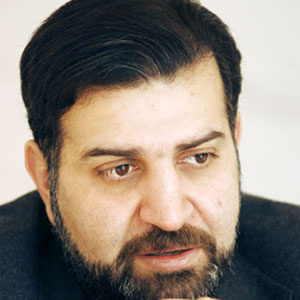National or Governmental: the History of Iranian Oil Industry
With oil industry at the hands of the government, the processes of economic development and democratization are facing huge obstacles in Iran.

With the 100th anniversary of discovery of oil in Iran, political and economic debates can shed light on dark corners of Iran’s contemporary history. We may find an answer to the questions such as whether oil has had a role in Iran’s political, economic and social development or it has led to backwardness and underdevelopment, did it make our country powerful or became an obstacle in grasping unique opportunities for development.
Since its discovery and extraction two years before the Iranian Constitutional Revolution, oil has been chained to Britain –and later United States’ - dominance, the misfortunate 1907 treaty (in which Britain and Russia agreed to divide Iran into spheres of influence) and expansion of Britain’s influence in Iran.
Some questions: did colonialism -tied to oil extraction- manage to impose its bureaucratic system on Iran? Is it a sound claim that oil and democracy, or oil autocracy are correlated? How is oil related to colonialism, open market and role of the Iranian nation?
Answer to these questions can contribute to studies on political, economic and social developments of the contemporary Iran. From my own understanding of history there rises a question that can lead us to deeper look: should we be satisfied with nationalization of oil industry? Couldn’t we say that oil was taken away from colonialism, but handed to autocracy?
Does a government which holds control of the oil –a naturally wealthy government- need the nation’s participation? Oil government and governmental oil promoted a top-down prescriptive recipe for development. After 60 years, this catastrophe still dominates our national economy and has become epidemic. Countries with no oil had to adopt a rational attitude towards development process, role of the market and economy and today they are in much better conditions compared with oil-rich countries. Exploiting non-prescriptive development plans, they managed to take better steps to reach a flourishing national economy.
Even the nationalization of oil industry failed in de-colonizing Iran until 1969 and it just led to emergence of an autonomous body in state-run oil business. Nationalization didn’t bring mechanisms of development with itself and consequently resulted in oil revenue becoming a centralized source of income, a piggy bank, for the government. That’s when state-run economy falls at odds with the democratization process and people’s participation.
With oil there came coup, U.S. and Britain competition and allegiance of Iranian statesmen to foreign powers. Bottom line: oil stood as a wall against full economic development. A government which should be a servant for its citizens became their master. Naturally when a government becomes wealthy it gains full authority; that’s when it can do whatever it wants needless of people’s support.
Although oil was extricated from colonialism, it strengthened roots of domestic autocracy. Oil revenues are directly guided towards government’s treasury and that’s what hampers Iran’s process of development.
I want to finish with posing a question: did the oil become governmental or national?

